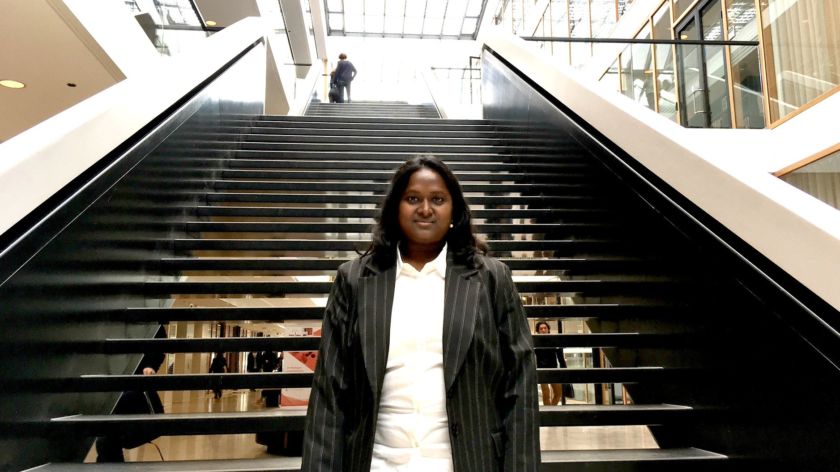Indian lawyer ‘finally feels peace’ in Nijmegen
Kiruba Munusamy is the new invitee for the Shelter City initiative, an organization that provides at risk activists a safe haven. Munusamy will stay at the Radboud University for three months. ‘Since the second I arrived, I felt at peace – for the first time in my life.’
Kiruba has made a name for herself not only because of her groundbreaking accomplishments in Indian human rights law, but also because of her life story. Born into the lowly Dalit caste, Kiruba and her family risked their lives to challenge the 3,500-year-old discriminatory social structure imbedded into Indian culture. Although studying law is not thought to be an achievable dream for Dalit women, Kiruba’s revolutionary spirit is part of what makes her so special.
‘I see it as my duty’
Originally from the slums, she risked her life walking through higher class neighborhoods to attend school, where she faced endless caste-based bullying from teachers. The Dalit people, often called the Untouchables or the Unseeables, are confined to the polluted areas of India and are only allowed outside at night. If caught outside of their boundaries they can be brutally beaten or even killed.
Stabbing
Kiruba persisted on to achieve a Master’s degree and shocked her peers when she enrolled in the local law college. Unfortunately, her struggle for acceptance did not end there. In the early stages of her career, Kiruba was outcasted by her colleagues, and was made the focus of a harsh campaign of discrimination aimed to discredit and demoralize her.
After enduring months of mental anguish at the hands of a stalker, she reached rock-bottom after being stabbed in the streets by an unknown assailant. This harrowing life experience is what motivates her to continue on, despite threats of violence. ‘I see it as my duty. When I represent Dalit people, I do it pro-bono because, for me, it is about the issues and the need for Dalit accessibility to the high courts.’
One of her cases echoed through India
Her demand for recognition was finally actualized when she argued and won an unprecedented case which challenged the dismissal of a trans women based on gender discrimination. As the prolific case echoed through India, several other members of the trans community came forward in hopes of being represented by Kiruba. Her legal work with the LGBTQI community has been instrumental in creating professional spaces of acceptance in India.
She has since then turned her tenacious dedication for social justice towards the plight of the Dalit people. Kiruba is currently organizing a legal training school to empower people from marginalized communities, especially Dalit women. She has given several talks at Radboud, and was featured at the Den Haag conference for International Women’s Day. In comment to her time in the Netherlands, Kiruba states: ‘Since the second I arrived, I felt at peace – for the first time.’
She hopes to carry this sense of acceptance back to India when she returns in two months.





Rinus van de Warreburg schreef op 11 april 2017 om 13:28
An amazing story about an admirable woman